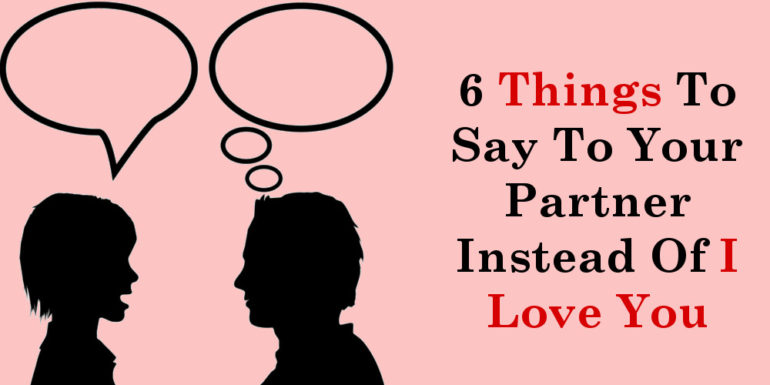Don’t believe in it, but ‘I love you’ is vastly overrated. People say it so many times that it has lost its authenticity, and is the butt of jokes now.
Every relationship though has special words or phrases that they use instead of the ‘three magical words’ that would mean the same.
Do you know what to say instead of I Love You? Let’s see.
1. I Effing Love You

This is extremely cheesy, with sugar on top version of I Love You. Usually said when the partner has done something for you and is a civilized version of I F***ing Love You. This is said by couples who have been in love for a few weeks, and the feeling of infatuation has died down.
2. My Love Grows Every day

This is a slightly toned down, and ingenious way of saying I love you. Although used by the Victorian authors like Bronte and Hardy, it signifies that their love is solidifying gradually, with no hope of eroding anyway. This is interesting because it means that their love isn’t a furnace, but a calm breeze.
3. You Cheer Me Up Like None

This implies that the couple is fun loving, just to each other. Others might crack a joke or two, and it might be way funnier than your partner, but it would not have the feel, or the gaze, or that subtle way of expressing that he/she does.
4. I Crave For You Physically

Sometimes, relationships need more than just the mental and emotional bonding. After a while, physical intimacy is important too. It is of paramount importance that your partner makes you feel sexy, and wanted. This works wonders if not done before.
5. You Are The One Whose Shit I Want to Handle

No matter how annoying you can be, your partner would always want you by their side. For that, even if they have to put up with your shit, they are absolutely okay with it.
6. Pleasant Conversations and Peaceful Silences

One way of expressing love that doesn’t require any such phrase is the act of having a lovely conversation that never gets dull between couples, and also the following silence where both coexist with each other, perfectly at peace at the invasion of space, because their space recognizes the other person, as a family.









